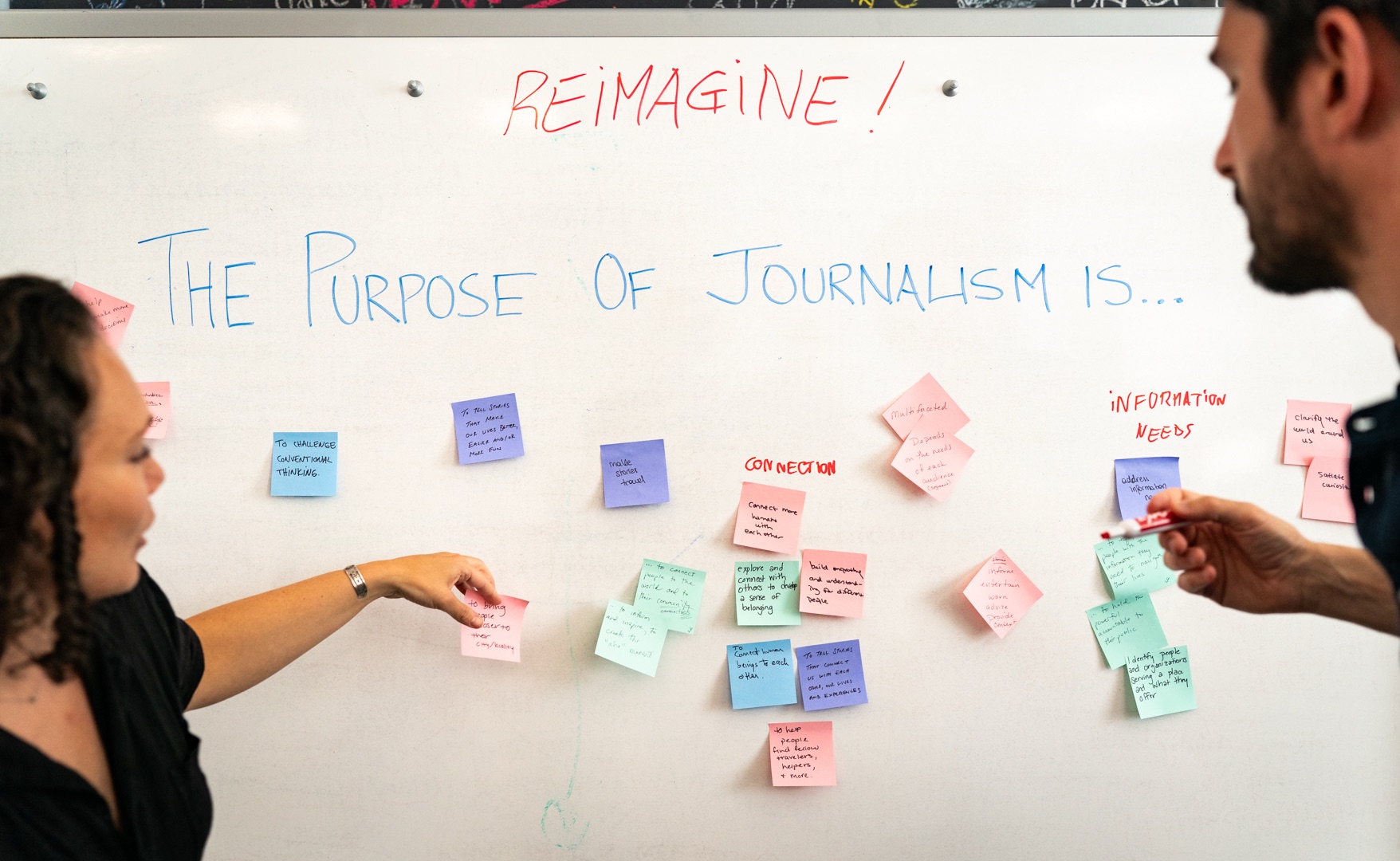NICAR 2013 was my first journalism conference and, as a computer scientist, I can't help but wonder what the implications are of this unprecedented NICAR showing — the largest ever attendance at the conference.
The world is changing, to be sure. We are no longer in an age where it is okay to be afraid of mathematics. Everyone from the worlds of journalism, government, and business must become math savvy and computer literate. Today, even some poets are pondering the implications of statistical regularities of words, and conversely computers are writing poetry!
But the most convincing argument for being tech savvy is not that it is necessary in today's world, but rather that it is incredibly powerful. Technology can be a means for engagement, activism, and social and political empowerment. Journalists have come to know the ways in which technology can empower us, put pressure on politicians, and drive real change. We all know the power of Facebook and Twitter, but simply existing in those mediums is not enough.
A few weeks ago, I read the 2013 annual letter from Bill Gates in which he asked, “Why does measurement matter?” Historically, he writes, aid to developing countries was discussed largely in terms of the amount of money invested, but today's data measurement and analysis allows for more transparency. It allows for us to understand where that money is going and measure aid in terms of how much impact it’s having.
There is a great video on his website that shows how better mapping in Nigeria has allowed workers to locate communities that have not yet received polio vaccinations and has helped to nearly eradicate polio in all but three countries in the world. It is striking that many of the technologies that are making such a huge change in development and in the public sector, as Tyler Fisher mentions in his post, those which journalists have made it a point to focus on understanding.
At the NICAR conference, one of the most inspiring moments was hearing Erin Jordan from the Gazette in Cedar Rapids, Iowa, speak on a panel called “waste investigations for any community.” Erin took us on a journey through her investigation of food-related waste in a local hospital in Iowa. After receiving a tip from someone who had worked at the hospital for some time, and some pictures of all of the food they had been wasting, Erin decided to investigate by requesting the data of the amount of meals cooked and delivered annually. As it turns out, the hospital had never considered their food data on an annual scale, looking only at the last two weeks’ numbers to figure out the following week's amounts. This amounted to very wasteful habits, for example, preparing the same huge quantities of comfort foods like pies and cakes, which were devoured on Thanksgiving Day but went to waste the following day. Falsely believing that they could not donate cooked food, the hospital was literally tossing out huge quantities of uneaten meals.
After digging through the data Erin found that the hospital had been wasting a whopping $181,000 per year worth of meals! Erin spoke about how sometimes we have to be advocates for our own story. She called up the hospital after her expose to ensure something had been done, and sure enough, wasted meals were going to the homeless. The hospital also started analyzing their habits to ensure that they weren't preparing so much food that it would have to be thrown away regularly. As she casually told us about how anyone else in the audience could replicate this kind of an investigation in any local institutions such as prisons, schools, or hospitals, I began to wonder about the real impact that Erin's story had made.
Supposing for a moment that the hospital had been wasting food for 10 years, a few weeks worth of investigating and using data on Erin's part may have saved $1,810,000, not to mention all of the other reporters she may have inspired to conduct similar investigations into their own local institutions. What was most striking to me was the casual manner in which journalists at NICAR spoke about the truly huge impact that they were having on the world, and how powerful use of data can be in showing the vastness of any given problem and spurring people to act to resolve it.
Erin's talk really drove home the answer to Mr. Gates' question — measurement matters because it provides for accountability. It helps us rectify inefficiencies and most of all it makes a difference — a big difference!
My biggest takeaway from NICAR was the power of data and technology literacy. I feel that technology literacy means much more than simply knowing our way around Facebook and Twitter or putting up blog. Even once we put content online, a general understanding of the workings of the web is vital to bringing traffic to it. A knowledge of data science is key to making sure readers understand the scale of the problems we highlight. An understanding of web-development helps to visualize it not just in the most appealing way, but more importantly in the most impactful way. Data science is not just for journalists. It is because of the stories that I heard at NICAR that I am ever more committed to the idea of teaching both computer science and data science as early as primary school.
I think Erin really showed us that the more knowledgeable someone is about the workings of data and the internet, the more empowered they are to make a difference on a grander scale. It is really the combination of the narrative and the numbers that allow for such powerful change on a broader scale and I hope that we chose to equip our youth—and ourselves—with the power to employ both with fluency.
About the author
Tagged





